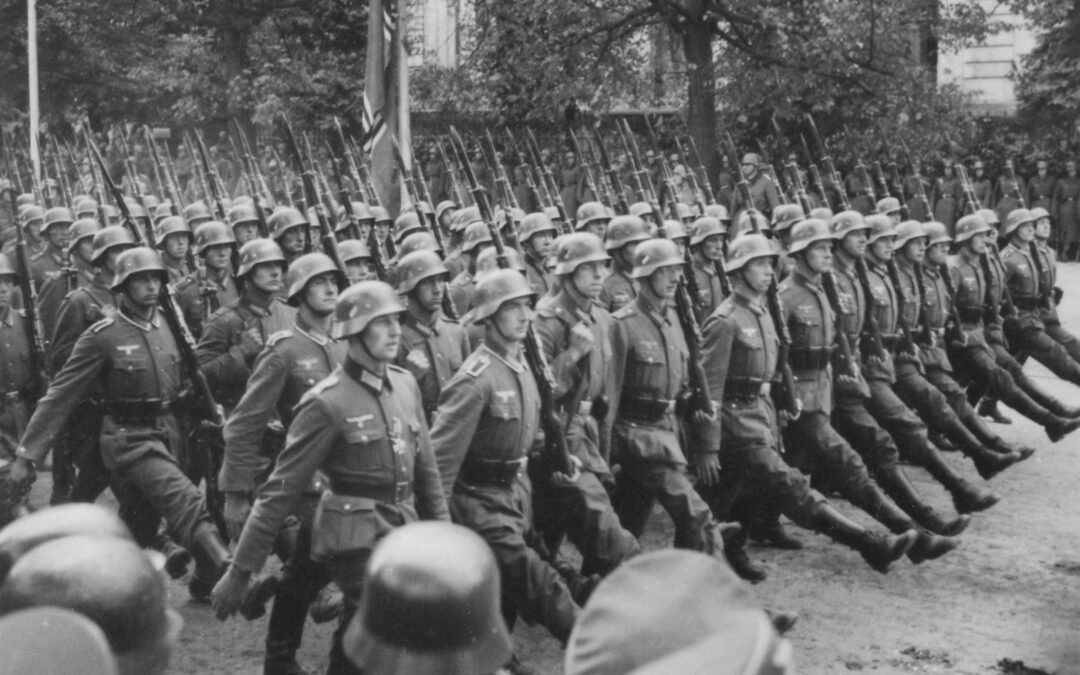Germans have significant gaps in their knowledge about the Second World War, a poll conducted on behalf of a Polish state research institute and published on the 85th anniversary of the start of the war has found.
The Pilecki Institute – named after Witold Pilecki, a Polish underground officer who deliberately had himself imprisoned at Auschwitz to organise resistance in the camp – commissioned a survey that was conducted by research agency Ipsos GmbH.
It found, for example, that 59% of Germans wrongly believe the primary victims of the Holocaust were German Jews. Only 28% gave the correct answer of Polish Jews.
According to the US Holocaust Memorial Museum, around 165,000 German Jews died during the war (70% of the prewar population) while between 2.8 and 3 million Polish Jews died (around 87% of the prewar population).
Badania: Co Niemcy wiedzą o drugiej wojnie światowej? Kto odpowiada za Holokaust?https://t.co/9LKF7QZAc7
— Rzeczpospolita (@rzeczpospolita) September 1, 2024
Respondents also more often believed that there were the harshest penalties for helping Jews during the Holocaust in Germany rather than in occupied Poland.
In fact, Polish territory – which was home to the largest number of Jews – had the toughest penalties, with whole families facing death if it was discovered they had hidden Jews.
Asked about responsibility for the Holocaust, 57% believed that Germans and collaborators from occupied nations were responsible to a similar extent. Only one third (34%) believed it was “mainly Germans” who were responsible and 9% that it was “only Germans”.
Sorry to interrupt your reading. The article continues below.

Notes from Poland is run by a small editorial team and published by an independent, non-profit foundation that is funded through donations from our readers. We cannot do what we do without your support.
The Pilecki Institute’s survey also asked about how Germany has accounted for its wartime crimes in occupied Poland. That has been a sensitive issue in recent years, with Poland demanding war reparations or some other form of compensation from Germany.
Just over half of Germans (53%) believe that their country has at least partially accounted for crimes against Polish victims, including 25% who believe it has fully done so. Meanwhile, 39% believe that Polish victims of the war have received adequate compensation from Germany while 25% believe they have not.
Around 6 million Polish citizens, 17% of the prewar population, were killed in the war, a higher proportion than any other country. The German occupiers also laid waste to many Polish cities and plundered or destroyed much of Poland’s cultural heritage.
A majority of Poles, 58%, want their country to seek war reparations from Germany while only 20% do not.
The poll comes days after @donaldtusk indicated, following a meeting with @Bundeskanzler, that his government would not pursue reparations https://t.co/HvCmsUPCBL
— Notes from Poland 🇵🇱 (@notesfrompoland) July 8, 2024
In June this year, the German government approved the establishment in Berlin of an institution that will commemorate Polish victims of Nazi Germany. It says that the enormous suffering of Poles under German occupation is still not well known among Germans today.
A 2020 study also found that Poles have gaps in their knowledge of the Holocaust. When asked what they most associate Auschwitz with, 50% said “the martyrdom of the Polish nation” whereas only 43% said “the destruction of the Jews”.
In actual fact, around 1 million Jews were killed at Auschwitz (around 300,000 of them Polish Jews) compared to around 70,000 ethnic Poles.
The German government has approved the establishment in Berlin of an institution commemorating Polish victims of Nazi Germany.
It says that the enormous suffering of Poles under German occupation "is still not well known" among Germans today https://t.co/gThmPLNWCh
— Notes from Poland 🇵🇱 (@notesfrompoland) June 27, 2024
Main image credit: Lilienthal, Jerome R./National Archives at College Park (under public domain)

Daniel Tilles is editor-in-chief of Notes from Poland. He has written on Polish affairs for a wide range of publications, including Foreign Policy, POLITICO Europe, EUobserver and Dziennik Gazeta Prawna.



















